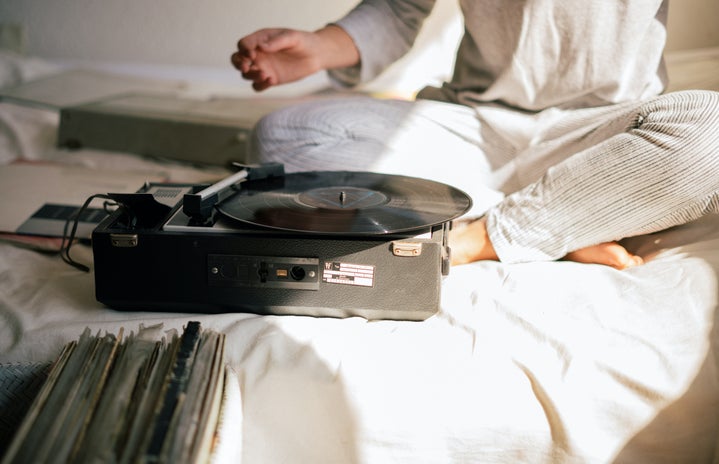When I first queued up Build A Problem on Spotify the night that the album dropped, I was expecting two things: dodie’s signature soft vocals and sparse production. What I got was so much more. The songwriting on Build A Problem somehow captures the mood of vulnerable late-night phone calls with friends and bundles it up into 3 minute-long musical diary entries. It’s sweet, honest and willing to explore the rocky realities of young womanhood—I’m utterly obsessed.
Build a Problem is the first full-length album from the British singer-songwriter, dodie. After building an adoring fan base on YouTube over the past ten years, this project marks her music’s decisive turning point from bedroom covers to professional, folk-pop perfection. The album is ethereal, with delicate harmonies and rich instrumentals, but the spotlight is truly on her lyrics. dodie doesn’t stick to cookie-cutter tropes from the radio; instead, she embraces unease and investigates relatable themes of comparing yourself to other women and hookup culture.
“Cool Girl,” Build a Problem’s lead single, tackles the topic of dodie’s battle with internalized misogyny. The song builds up to a climactic end where she whisper-sings “Cool girl will be different/I’ll be quiet, I’ll be easy” as a chorus of voices chants “No, I won’t be like them/Want me more than a friend.” Every time that I listen to this song, I am struck by how beautifully it sums up the “I’m not like other girls” phenomenon. Too often our society encourages competition between women and makes us feel like pushing others down will help us stand out in the eyes of men. In “Cool Girl,” dodie recognizes how she’s falling prey to this mindset by trying to seem less high maintenance than traditionally feminine women. It’s refreshing to see a singer (who’s an online influencer, at that!) highlight this topic. The music industry is usually so saturated with sexist messages and cruel comparisons of female celebrities; dodie’s point of view is fresh and thought-provoking. I can’t recommend this song enough to anyone who’s struggling with self-image and looking for a reminder to tune out the patriarchy.
The album’s take on internalized misogyny blends into another core theme of Build a Problem: finding complicated empowerment through hooking up. dodie discusses her feelings surrounding sexuality on various tracks. In the personal ballad “Special Girl,” dodie admits, “Twenty four, I still count everyone I kiss/The bitter ones still taste the best,” while in the brooding “I Kissed Someone (It Wasn’t You)” she sneers, “I kissed someone, it wasn’t me/Locked inside a slut this eve.” These lyrics poetically speak to the pressures my friends and I have all observed in the college dating scene. There’s a weird tension between young women wanting to take control over our bodies and decisions yet still feeling ashamed about having casual flings. I’ve never heard a musician put these ideas into words before, so dodie’s new tracks really stand out as innovative. There are popular songs about women confidently embracing their sexuality and there are songs with icky, slut-shaming lyrics, but there isn’t much material in between. I’m impressed by how she paints a picture of navigating relationships and expectations as a young woman without avoiding the messiness of real life.
Build a Problem is packed with many more standout tracks grappling with subtly feminist stances on identity and romance. If you like peppy songs, fall in love with the ironically named “Hate Myself,” or if you want a heart-wrenching listen, try out “Four Tequilas Down.” Each song honestly speaks to the experience of college-aged women making our way in the world—with an added dash of folksy string instrumentals, of course. Whether you’re a long-time dodie subscriber or a newcomer intrigued by Build a Problem’s appearance on the charts, I highly recommend you give this album a thorough listen!



